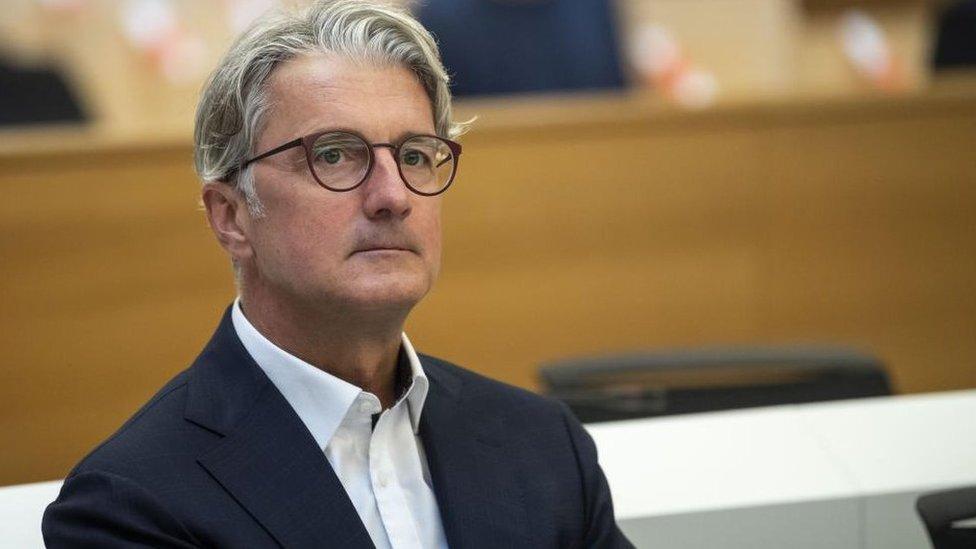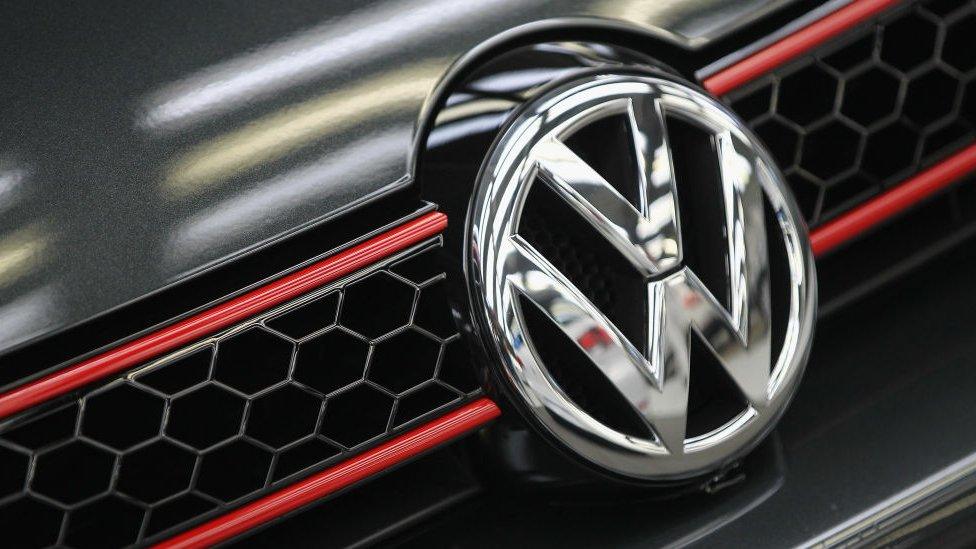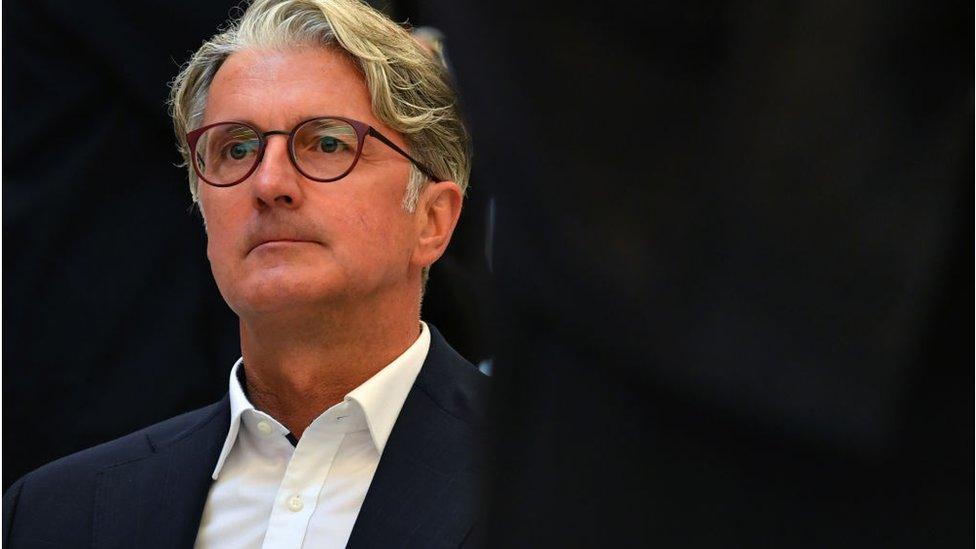Ex-Audi boss Stadler avoids jail in VW emissions scandal
- Published

Rupert Stadler's conviction may not do much to calm consumer anger but VW is desperate to move on from the scandal
Former Audi chief executive Rupert Stadler has been given a 21-month suspended sentence and a fine for fraud and negligence in the 2015 diesel emissions scandal.
He is the first top manager to be tried and convicted as part of Dieselgate.
German carmaker Volkswagen and its Audi subsidiary admitted at the time to using cheat software so their cars appeared less polluting in tests.
Stadler was once a star of the German car industry.
He was not accused of ordering the use of emissions cheating software, but did admit to not doing enough to stop the scam and halt sales of cars affected.
He had initially denied the accusation but two and a half years into the long-running trial he and two other defendants were offered a plea deal avoiding custodial sentences in return for their confessions.
In a dramatic U-turn in May they then agreed and admitted their roles.
Along with his suspended term Stadler was handed a €1.1m (£950,000) fine.
Wolfgang Hatz, a former Audi engines boss, was given a two-year suspended term for fraud and a €400,000 fine, while another engineer received 21 months and a smaller fine. Both had admitted manipulating diesel engines.
VW has been desperate to draw a line under the scandal so it can focus on its bid to leave behind diesel and switch to electric vehicles.
But Mr Stadler's conviction may not do much to assuage consumer outrage. In the eyes of the German public, Stadler's guilty plea did not look particularly penitential. It only came after judges threatened him with jail.
His confession last month did not admit to direct involvement in Dieselgate, only to mistakes made in dealing with the matter. In the courtroom his lawyer read out a carefully written, complicated text, full of caveats, conditionals and the passive voice.
Stadler admitted to having opportunities to step in and act, but had not and had deeply regretted it. "He did not know [about the software] but had accepted with approval that it was possible," was the formulation. "More care would have been needed".
In the courtroom he confirmed the written statement with a simple "yes". To angry consumers and outraged environmentalists this was hardly a moment of Stadler baring his soul.
Critics have pointed out that €1.1m is not a vast fine compared with his earnings and VW's annual profits.
But other cases against top managers are in the pipeline.
Stadler's trial has lasted years.
Proving who knew what and when is proving difficult. Prosecutors say that so many people were involved it may be impossible to identify who was ultimately responsible.
But with other court cases against top managers in the pipeline, Tuesday's verdicts are a possible sign of further high-profile convictions to come.
Related topics
- Published25 May 2022

- Published30 September 2020
